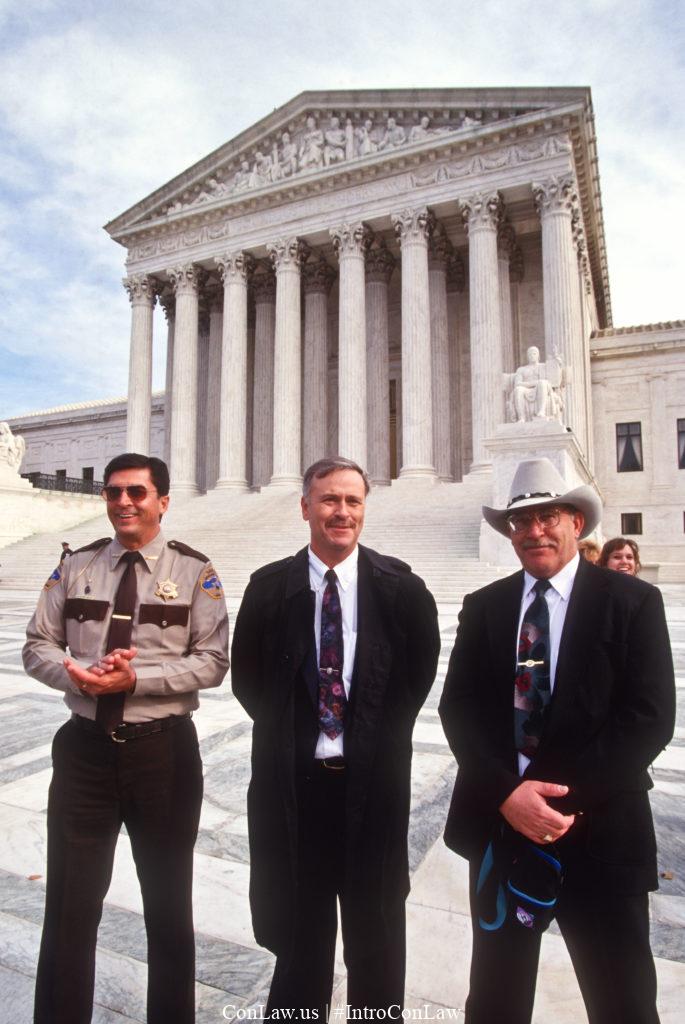
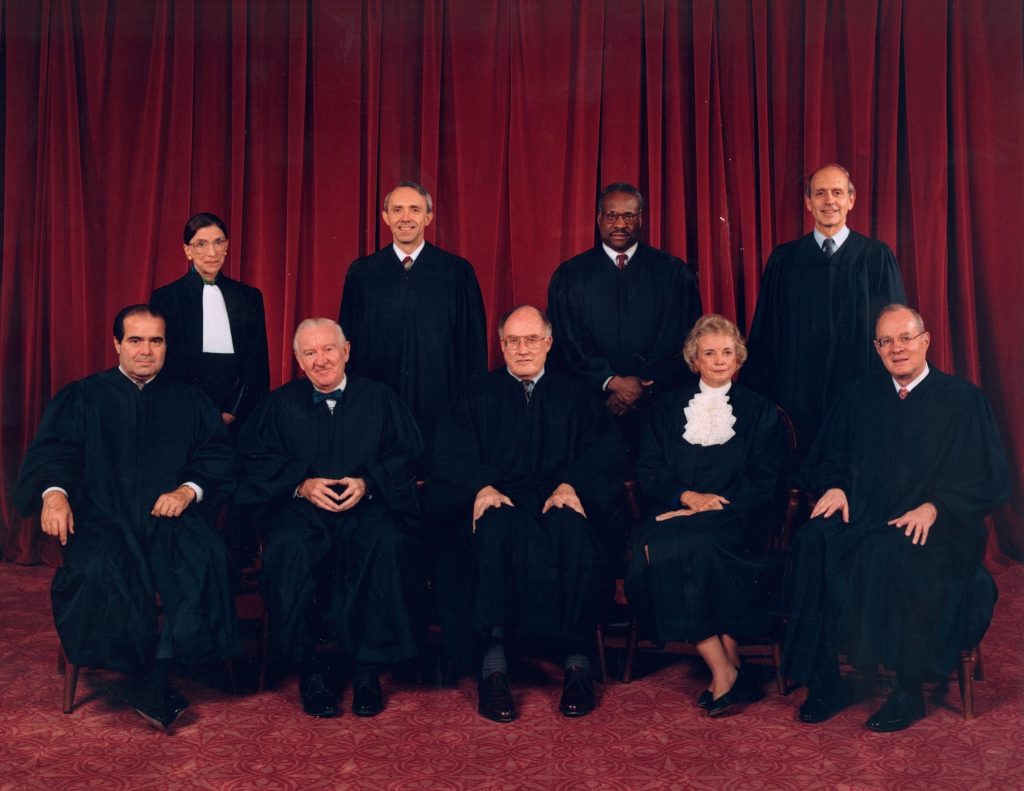
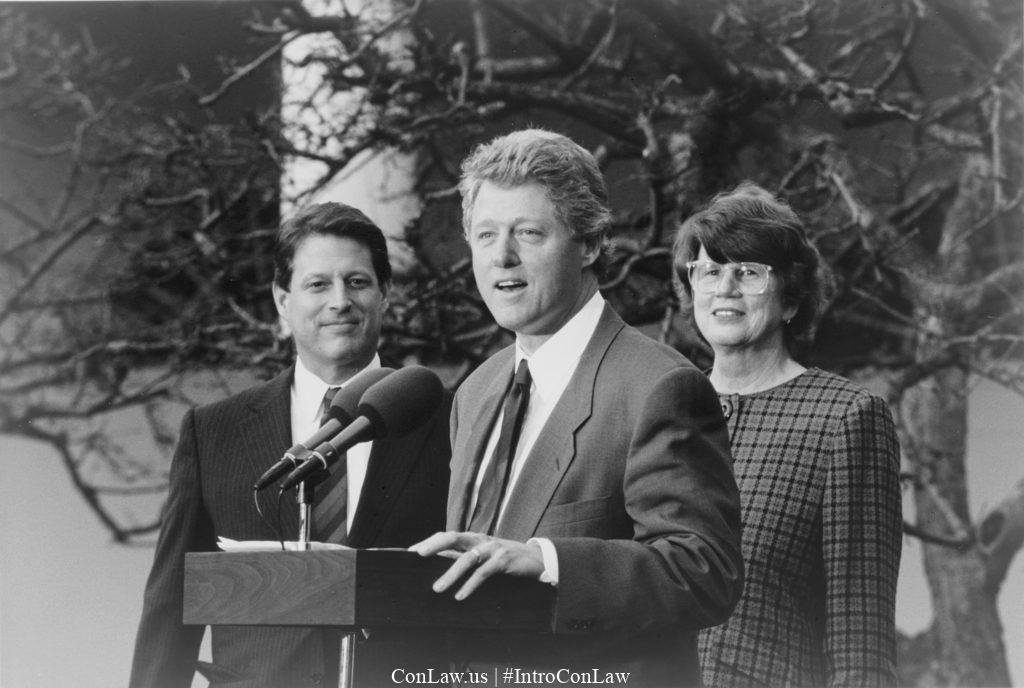
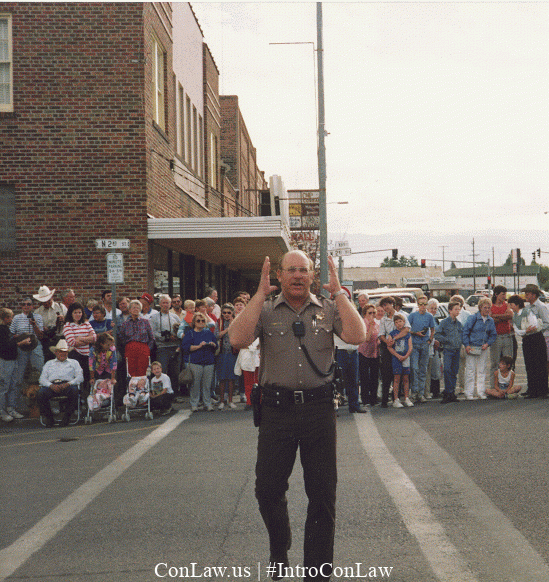
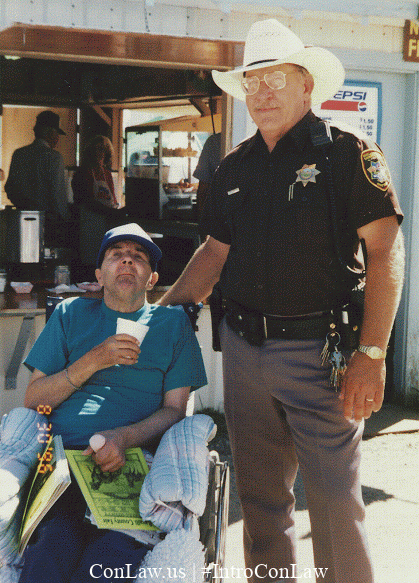
Printz began in 1993, when Congress enacted the Brady Handgun Violence Prevention Act. The law proposed a national database that would allow federal fire- arm dealers to instantly check the background of prospective handgun purchasers. That system, however, would take some time to develop. During this time gap, the federal law commanded the “chief law enforcement officer” (CLEO) of each local jurisdiction to conduct background checks.
The law was challenged by several sheriffs, including Jay Printz of Ravalli County, Montana, and Richard Mack of Graham County, Arizona. They argued that the federal government could not force them to perform background checks, which could delay or even prevent people in their communities from purchasing firearms.
On this question, the Supreme Court divided 5-4. Justice Scalia wrote the majority opinion. Justice Stevens wrote the principal dissent. They disagreed on everything.